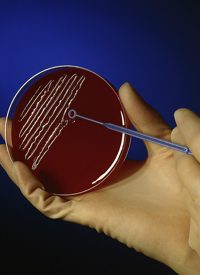
Have you ever gone to your doctor for a prescription to clear up a bad cold? The evidence is that antibiotics do not work against colds and flu, which are caused by viruses — not bacteria. And routine prescriptions may be causing a health crisis.
Experts at Europe’s Centre for Disease Control say that prescriptions, which are not needed in most cases, are fueling the growth of superbugs, bacteria resistant to medication. “If this wave of antibiotic resistance gets over us, we will not be able to do organ transplants, hip replacements, cancer chemotherapy, intensive care and neonatal care for premature babies,” says ECDC spokesman, Dominic Monnet.
“It is the whole span of modern medicine as we know it, that we will not be able to do if we lose antibiotics,” reports the U.K. Telegraph.
Superbugs, such as MRSA are resistant to nearly all antibiotics. They result from an antibiotic’s failure to kill off bacteria in an infected person (or an infected animal). The resistant bacteria grow and become a new infection, needing a new antibiotic.
There is hope, according to Michelle Moore, microbiologist and author of MRSA Secrets Revealed, “By managing the type of antibiotics that are prescribed and only using antibiotics when needed, hospitals can actually reverse antibiotic resistance in their hospitals.”
New Jersey M.D. Joel Fuhman, author of Disease Proof Your Child sites a study that “90% of antibiotics are given for viral illnesses, against which they have no value.” Children are often given repeated prescriptions for ear infections that are caused by viruses. The antibiotics kill off good bacteria in the colon that act as an aid to the immune system.
The CDC announced a Get Smart About Antibiotics Week in early October to reach pharmacists, doctors, and the public. “With the extra challenge of an H1N1 flu pandemic, it is more important than ever that patients and parents know that antibiotics do not treat flu,” says Dr. Laura Hicks in a CDC press release.
“People need to take responsibility and not give it to a white coat,” says Michael Casey, N.D., who works with hundreds of patients each year through Restoration Ranch in Southern California. “Pharmaceuticals have educated us to such a degree that we think we have to get a pill for everything.” He estimates that 60 percent of drugs taken could be eliminated if patients thought from cause to effect, “What did I do to get this? Did I eat a ton of candy? Am I not exercising or getting enough rest?” Dr. Casey also notes that drinking enough water and getting sunlight will go a long way toward healing infections.
Antibiotics hurt in two ways, John Toth, M.D. told TNA: They build resistance in bacteria that use to be sensitive to drug therapy and 2) kill off a lot of beneficial bacteria. Beneficial bacteria make vitamins (like B12), help digestion, fight bad bacteria, and help absorb nutrients. “An adequate amount of good bacteria in the GI tract act like another organ to help boost immunity to the whole body.” Without that good bacteria being replaced, the body is vulnerable to more infections, food allergies, and autoimmune disease.
Good bacteria can be replaced by eating fermented foods such as Kefir and using a quality pro-biotic supplement, according to Dr. Toth.




